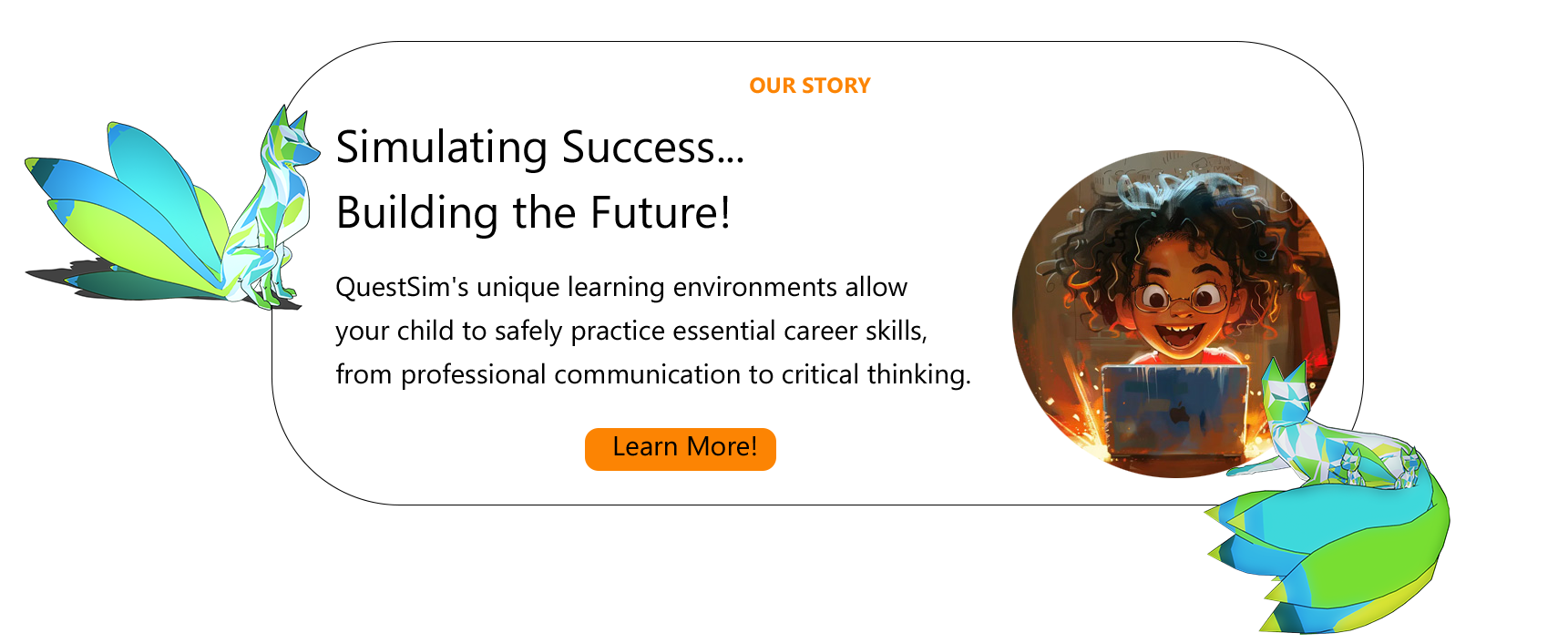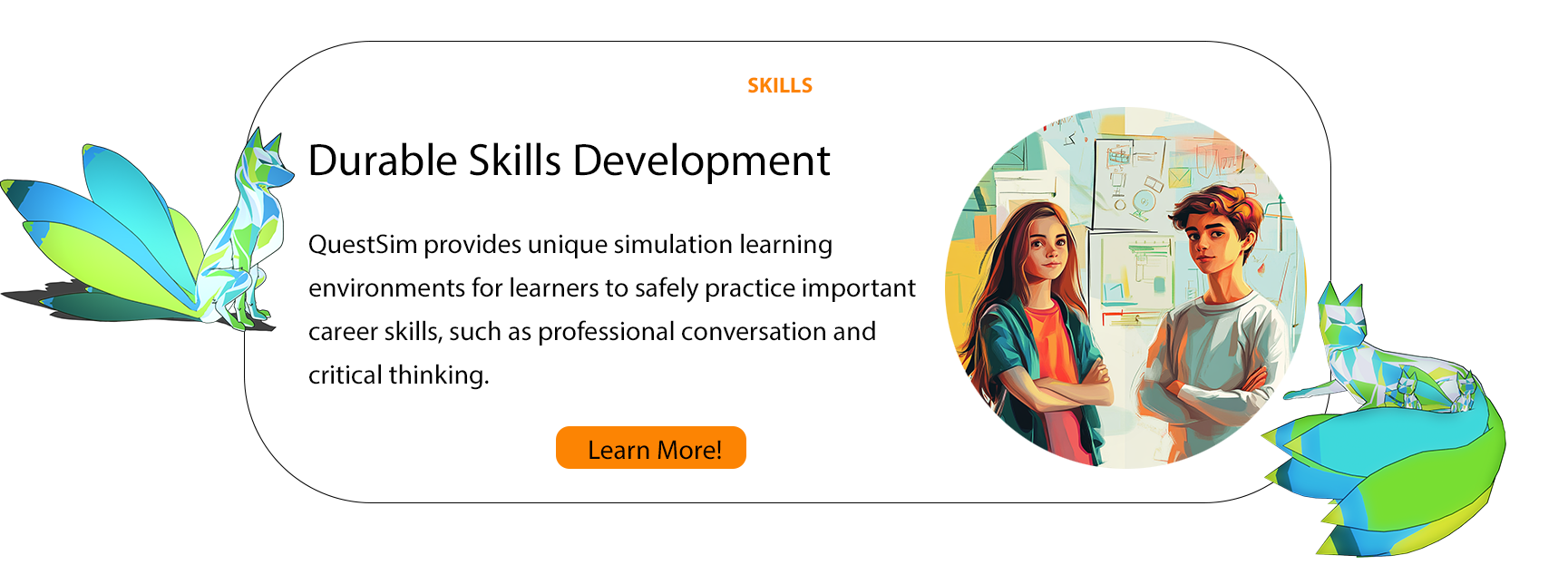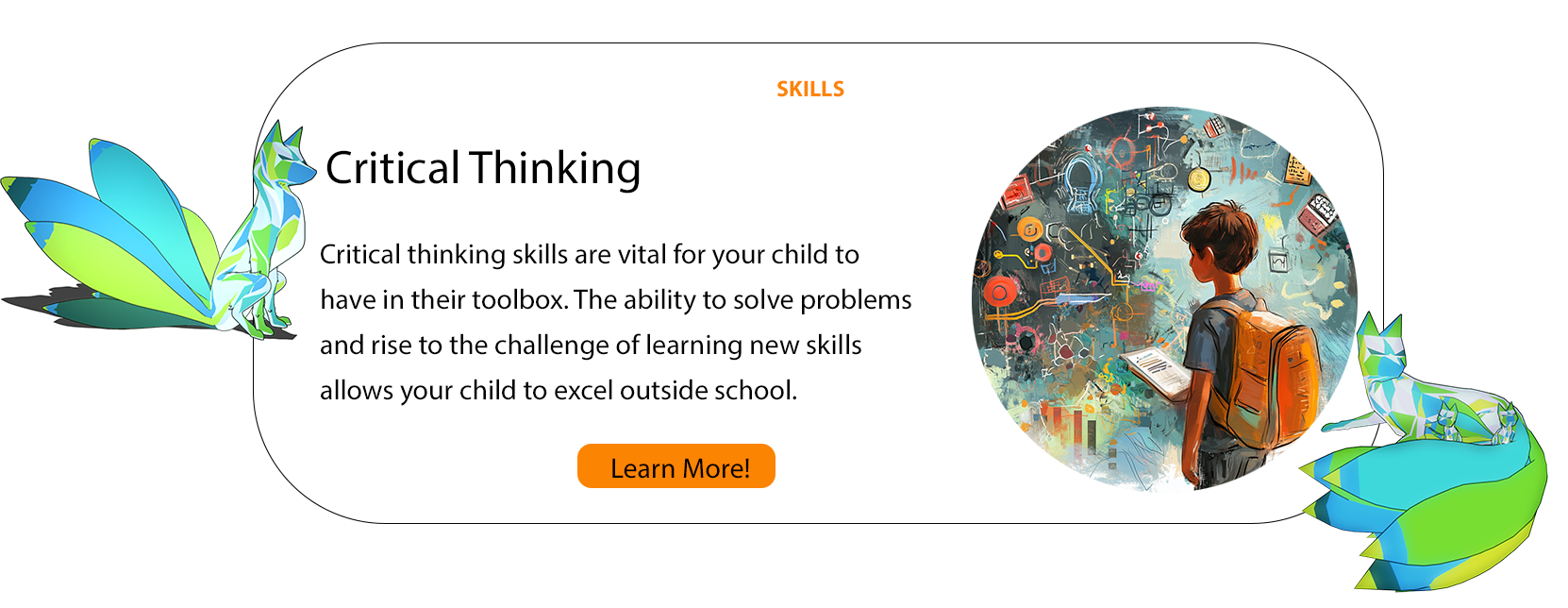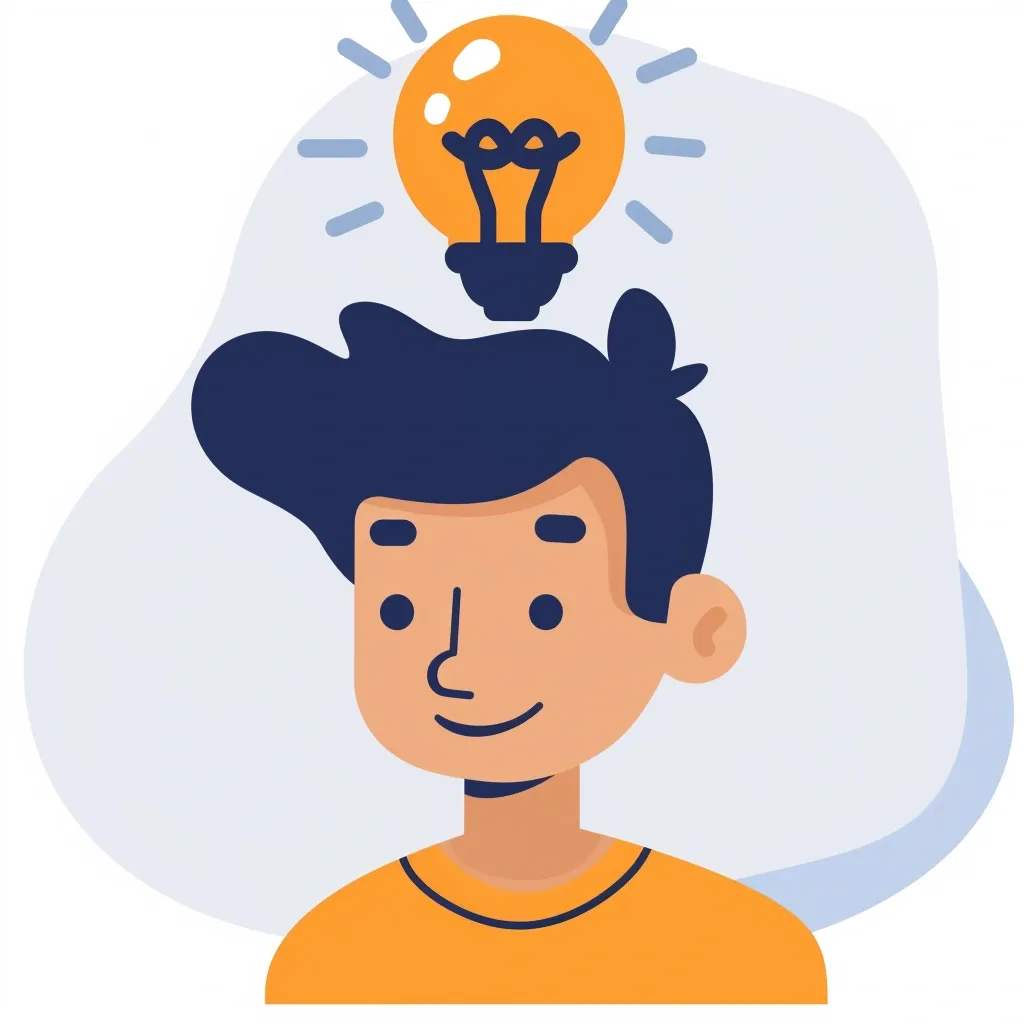
High Engagement!
Immersive 3D simulation learning dramatically increases student engagement. Measure student success through trackable progress and reporting.
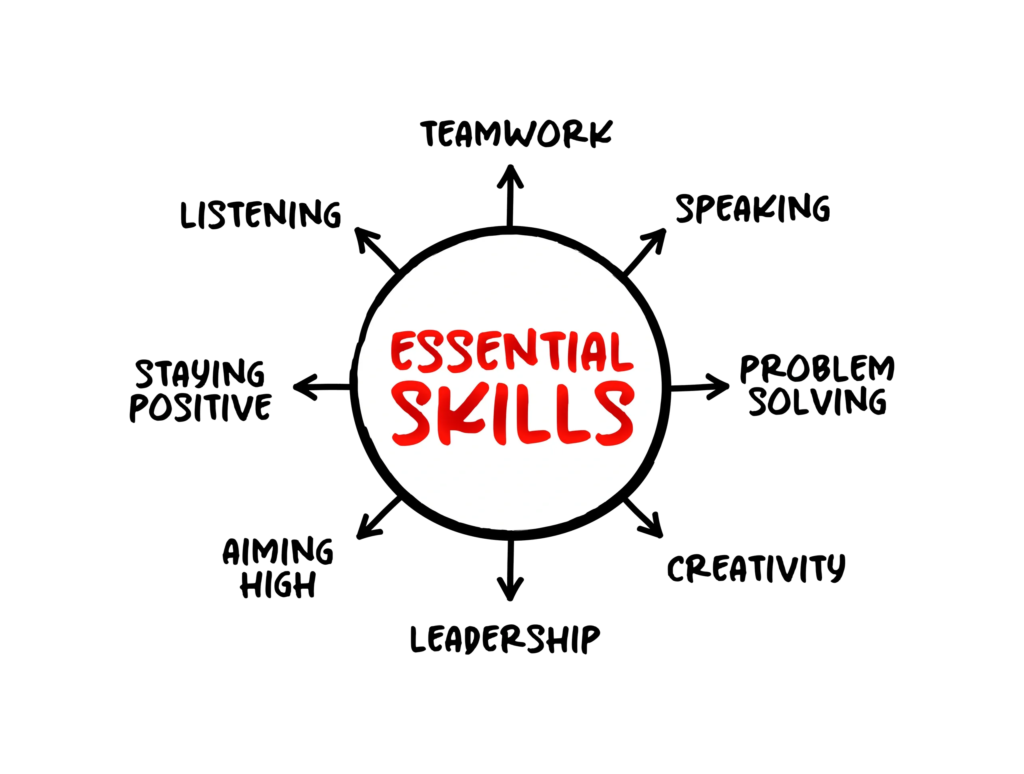
Essential Skills!
Build durable skills like critical thinking, creative problem solving, and resilience to set students up for success and a lifelong passion for learning.
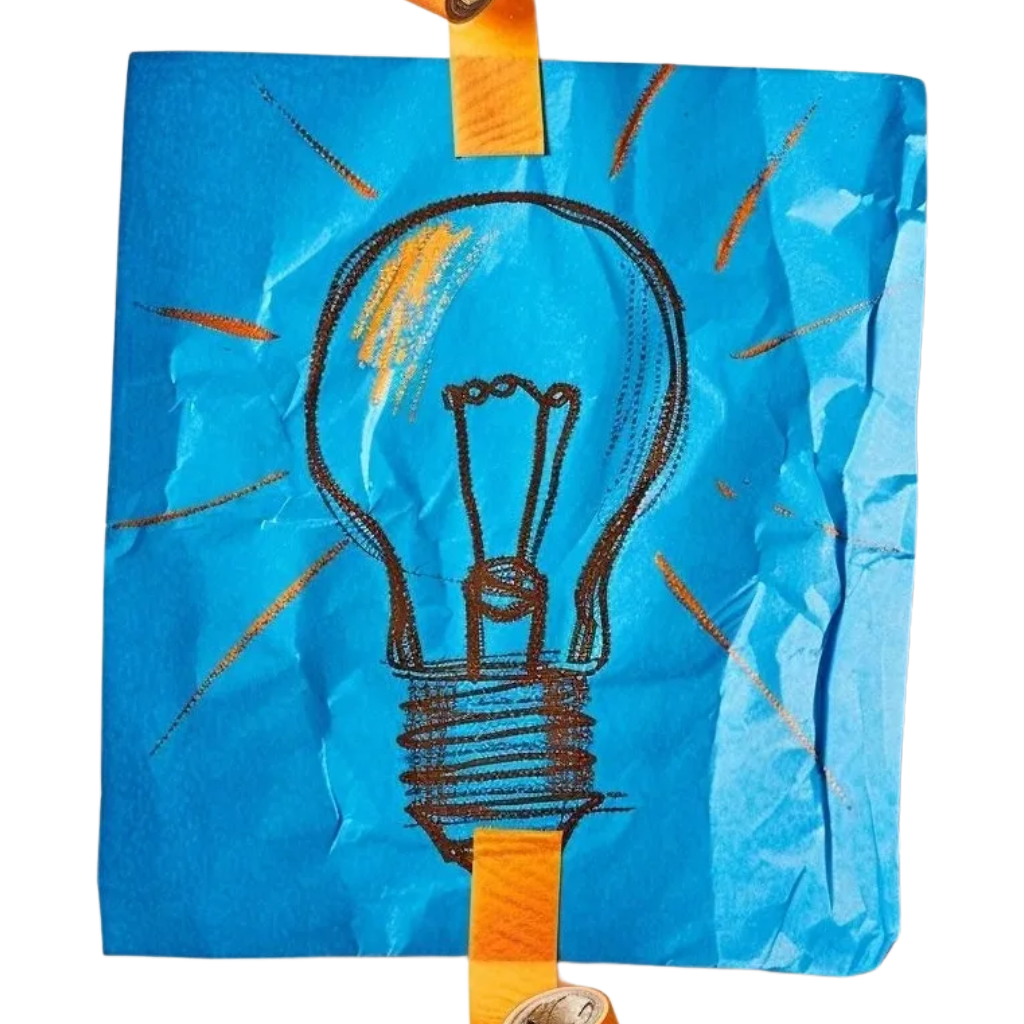
Make Learning Stick!
It has been proven that simulation learning increases learning retention and provides a 2-sigma improvement in understanding compared to conventional teaching methods.
PROVEN LEARNING OUTCOMES

Proven to shorten the path
to mastery
discover questsiM
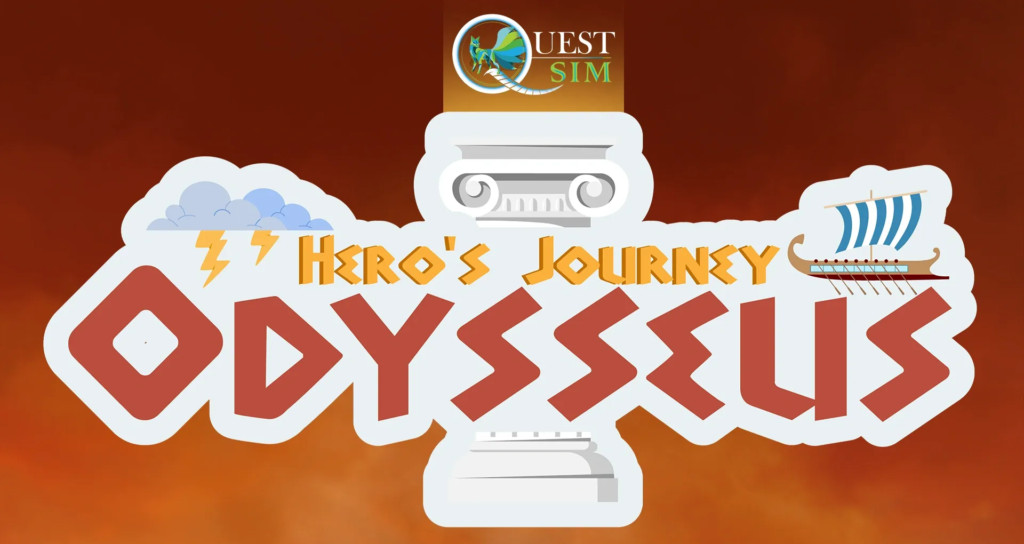
English and Social Studies
“Without a doubt! It’s engaging, keeps students wanting more, and most importantly, makes content memorable.”
-Patricia Russac,
Humanities Teacher at Buckley Country Day School, NY
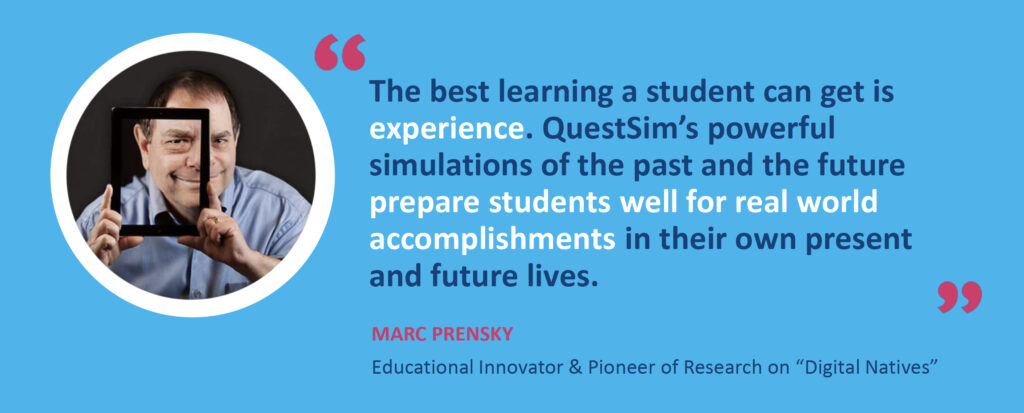
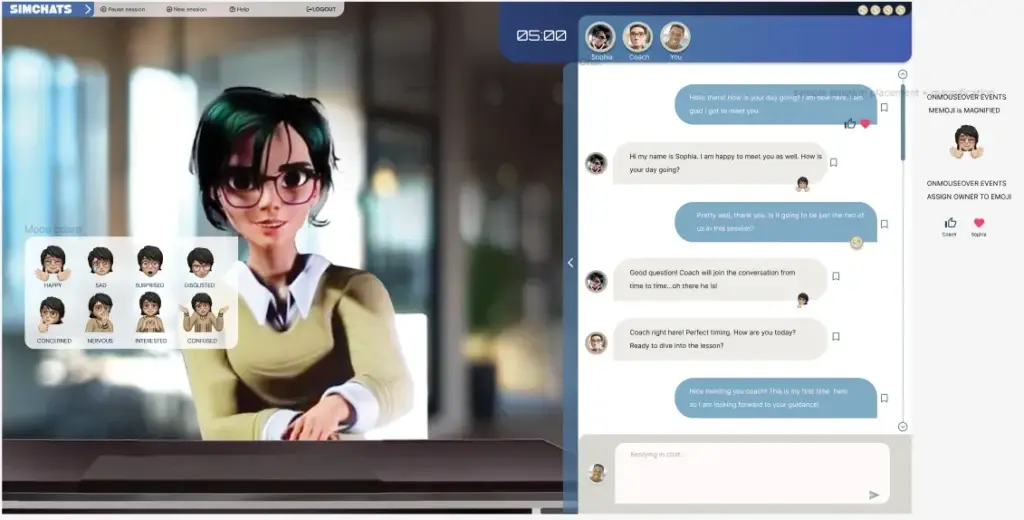
Project-Based Skill Building
Game-based learning is an effective way to engage students and improve learning retention. Our games are designed specifically for classroom use and focus on achieving the learning objectives.
Teaching real-world, practical skills can be challenging during regular school hours. However, we have developed a solution that combines core lessons with vital skills such as communication, critical thinking, and creative reasoning. By doing so, we aim to provide students with a well-rounded educational experience.
STEM
Imagine learning Pythagoras’ Theorem directly from Pythagoras in Ancient Greece. Our simulation-based learning experience guides students from understanding different types of triangles to deriving and applying Pythagoras’ Theorem to complex problems. STEM games include Newton’s Laws, Chemistry Quest, Lab Quest, and Mission to Mars! With many more exciting STEM Quests coming soon!
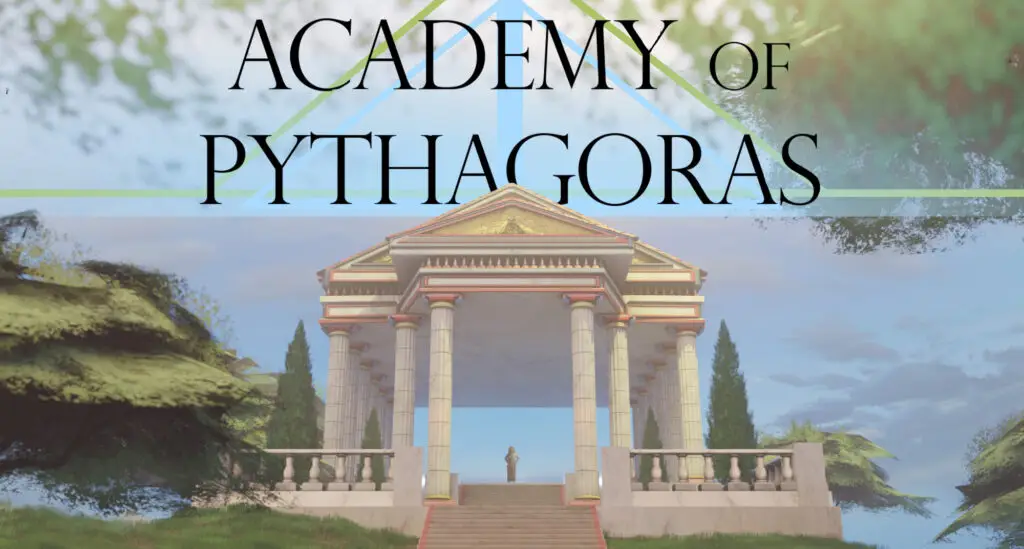
Supercharge your lessons with these essential core skills!
Math

Make sense of problems and persevere in solving them.
Reason abstractly and quantitatively.
Construct viable arguments and critique the reasoning of others.
Model with mathematics.
Use appropriate tools strategically, attend to precision, and look for and use structure.
Literacy

Make logical inferences from explicit details; cite specific evidence to support conclusions drawn.
Determine central ideas and summarize the key supporting details and ideas.
Interpret words and phrases as they are used in a text.
Integrate and evaluate content presented in diverse media formats.
Science

Knowing, using, and interpreting scientific explanations of the natural world (disciplinary core ideas and crosscutting concepts)
Generating and evaluating scientific evidence and explanations (practices)
Participating productively in scientific practices and discourse (practices)
Understanding the nature and development of scientific knowledge (practices and crosscutting concepts)
CONNECT WITH US!
SIGN UP!
JOIN THE QUEST
Sign up to get an interesting (short) email once a month 🙂

